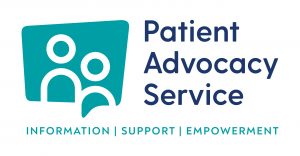Over one million queries inform Citizens Information Board pre-budget submission.
Citizens Information Board-funded delivery services dealt with over one million queries and assisted over 700,000 callers to access a wide range of social, public and financial services in 2017. Drawing from those experiences, the ‘Barely Getting By’ pre-budget submission highlights how a targeted approach by Government in Budget 2019 could more effectively support people with disabilities, low paid workers, lone parents, carers, long-term unemployed and older people.
Angela Black, Chief Executive, CIB said: “The unique vantage point of the Citizens Information and MABS services across the country gives a keen insight into the experiences of people accessing social and financial services.” She added: “The CIB pre-budget submission speaks to the experiences of people who are barely getting by on a day-to-day basis. When a problem hits such as illness, a reduction in working hours, or a rent increase they really struggle. For many clients public services are essential to enable them to cope with limited means in difficult circumstances. It is important, therefore, that we highlight and recommend where improvements can be
made.”
The submission makes recommendations in areas that include housing, debt and affordable credit, welfare supports for workers, and the provision of benefits and services.
- In 2017, for the first time, there were 100,000 housing queries to Citizens Information Services. The submission calls for greater rent regulation measures and increased supports for vulnerable households to access suitable accommodation.
- The provision of a Public Personal Insolvency Practitioner and a reduction in the three year supervision period for Debt Relief Notices are recommendations arising from MABS casework.
- The experiences of the National Advocacy Service for People with Disabilities inform recommendations for the introduction of a new statutory homecare scheme and increased funding for the provision of personal assistance hours, home help and home care packages.
The highlights of some of the more topical issues are in summary below. The full report can be accessed at:
http://www.citizensinformationboard.ie/en/publications/social_policy/prebudget_submissions.html
Pre-Budget Submission Highlights
Debt and financial issues impacting MABS clients
Recommendations include:
- Provide funding for consumer education on sustainable credit, with a particular emphasis on low income groups.
- Reduce the three year supervision period for Debt Relief Notices from three years to one year.
- Review the concept of ‘excludable debts’ in Debt Relief Notices.
- Provide broader access to insolvency solutions by funding a Public Personal Insolvency Service and enhance MABS to include PIP services on a means-tested basis.
Fuel Poverty
The issue of fuel poverty was highlighted following the publication of a MABS report. It found that seven in ten households within their client group were in fuel poverty with over 55% of households reporting that they had gone without heating in the previous 12 months due to lack of money. The issue was of particular concern amongst Travellers.
Recommendation:
- Provide for an increase in the rate of Fuel Allowance and introduce a Cold Weather Payment Scheme.
Housing and Housing Supports
During 2017, staff in information services responded to over 100,000 queries relating to housing issues. Many difficulties originate from low security, low stability, low quality and high-cost housing. Particular concerns that come up time and again include:
- The supply, processing and allocation of social housing.
- The lack of availability, affordability and security of tenure of private rented accommodation across the country .
- The real threat of homelessness and the inadequacy of homeless supports.
Recommendations include:
- Remove short-term activation incentives from income assessed under the Social Housing Assessment Regulations.
- Introduce additional rent regulation measures (such as linking rents to the Consumer Price Index) and allow for the continued use of discretion with maximum rent limits in certain cases.
- Provide adequate resources to local authorities for the administration of the HAP (Housing Assistance Payment) scheme including monitoring and enforcement of minimum standards
Home Care Services
Feedback from CIB funded services, including Citizens Information Services and the National Advocacy Service (NAS) for People with Disabilities, indicate that the Home Care sector is not well regulated. There are significant challenges facing people with disabilities and older people in getting the supports they need to live at home or to transition from hospital back to home.
In particular, NAS advocates have encountered cases where lack of funding for personal assistance hours for people with disabilities has led to individuals being unable to remain in their own homes and having to move into residential settings.
Recommendations:
- Proceed with the establishment of a new homecare scheme on a statutory basis and provide increased funding for the provision of personal assistance hours, home help and home care packages and additional supports for people with disabilities living in the community.
- Introduce a system of graduated care provision for those in receipt of Carer’s Allowance, increasing the hours allowed to work or study whilst retaining their caring role.
- Restore funding for local authority schemes (Housing Adaptation Grants for Older People and the Mobility Aids Grant Scheme) to 2010 levels to support older people and people with disabilities to continue to live in their own homes.
Other recommendations in the report include:
Work and Welfare
- Change eligibility for jobseeker’s payments to criteria based on hours worked rather than the number of days worked, to better support part-time and casual working patterns.
- Phase out the age-differentiated, reduced rate of payment of Jobseeker’s Allowance for jobseekers who are under 26
- Adjust the income and working hours threshold for the Working Family Payment to better reflect the types of employment that are now being filled by low-income families.
